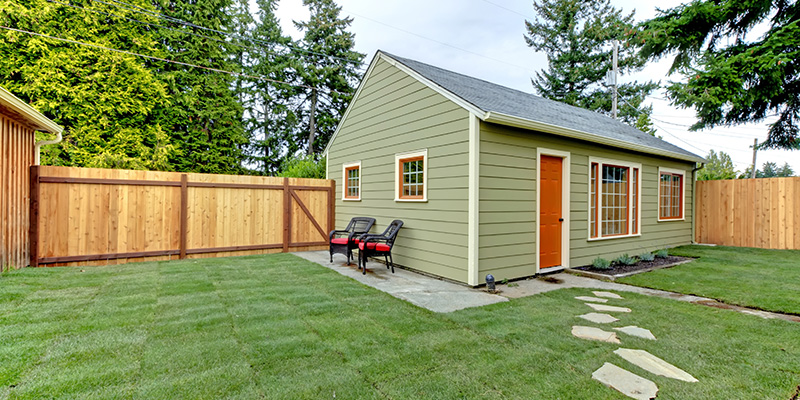You may have thought of constructing an accessory dwelling unit (ADU) on your California property. ADUs, sometimes called “granny flats” or “second homes,” are extra residences commonly used as in-home businesses, rental apartments, or guest quarters. Despite certain restrictions on where and how an ADU may be built in California, the process is simple and might be a great way to increase the value of your home. Continue reading to discover more about tiny houses and ADU construction. If building one appeals to you, trust California’s best, Acton ADU.
Why Are ADUs Popping Up Everywhere These Days?
ADUs are small, additional dwellings that are frequently placed next to or on the same property as your primary residence. These unique rooms may be used for a variety of reasons, including guesthouses, rental apartments, and additional family living quarters.
A variety of factors have contributed to the present spike in interest in ADUs in California. These constructions are well-known for increasing a home’s usable space without significantly increasing the cost of the property or necessitating costly repairs or construction. Furthermore, studies show that ADUs benefit both homeowners and the areas in which they are located. They can, for example, enhance housing values and generate revenue while having little to no impact on neighbors.
This adaptable space may be used for a range of activities, including but not limited to business, physical exercise, living, home teaching, creative expression, and video work creation. ADUs are a terrific option for many California homeowners, and their popularity is expected to grow in the coming years.
How an ADU Can Make Your Life Easier
An additional dwelling unit may raise your property’s value, square footage, and utility. All of these benefits have long-term implications. Having an ADU on your property gives you more freedom in designing your living space. Living with little children or elderly grandparents, for example, might be difficult, but it is possible to give everyone some alone time and space to do their own thing while still pitching in to help. ADUs can also be used by their owners as offices, studios, or workshops. You may now work whenever and for whatever length you want and pursue any professional path you choose.
An ADU on your California home is highly useful since it provides extra space for you, your family, or visitors. An ADU can accommodate short-term guests, such as family or acquaintances passing through town. This may allow you to earn some additional cash. On the other hand, it can be a long-term solution for adult children who want greater freedom but still need a place to live. If you decide to sell your home, its value may rise over time. Building an ADU on your property, whether you intend to use it immediately or later, has various benefits.
How Do You Get Started Building an ADU on Your Property?
Because obtaining permission to build an ADU in California is dependent on your property and circumstances, there is no one-size-fits-all solution. But first, let’s go through how it works.
Before you may build an extra housing unit on your California property, you must first satisfy a number of prerequisites. The first step is to establish whether your property is suitable for an ADU. This is often decided by the size and location of your property and the zoning restrictions in your area. Then you’ll need to get permission from your local building department or design review team. This method frequently includes presenting plans and documents explaining what you want to build and how it will look and meeting with others in the area to discuss and evaluate your designs.
You may begin construction on your ADU once you have obtained the necessary rights and approvals. This usually necessitates the formation of a team of contractors and building professionals. Finally, your new ADU must be registered with the city or county where it is located. Getting permission to begin ADU construction on your California property can be a time-consuming and challenging process, but it is doable with careful planning and attention to detail.
The Cost of Constructing an ADU
When purchasing a new home in California, one of the first things people consider is whether or not there will be enough space on the property to build an ADU. When building an ADU, whether you intend to live in it or rent it out for profit, there are a variety of pricing and factors to consider.
Most of the costs connected with constructing an ADU are for supplies, renting or purchasing equipment, permits, labor, and taxes. These expenses quickly add up depending on the extent and complexity of your project. Upon the construction of the ADU, you may be required to pay additional fees for utilities such as water and electricity. If you rent out your ADU rather than reside in it, you may be required to pay an extra insurance premium.
Before beginning an ADU project, examining any zoning regulations, municipal or county building laws, local authority inspections, permits or licenses required by local governments, and any other construction approvals or licenses is critical. The number of papers required to obtain an ADU permit is determined by where you live and what you want to do with your property. This is where the ADU personnel may assist you by taking some of the stress off your shoulders.
Acton ADU’s Building Project Strategy
The Acton ADU technique is among the most effective on the market. Their team is well-versed in all municipal and county regulations, so you can be assured that your project will be approved. They’ve also built ADUs for homeowners in over 40 California counties, so you can be confident that the job will be completed correctly and on time. Their crew has over 30 years of industry experience and can guide you through the complex process of constructing an ADU.
Every project begins with an idea, and they will assist you in fleshing out that goal while giving exhaustive and complete guidance. This way, you’ll know what to expect whenever their builders arrive at your door. Acton ADU is unlike any other construction firm. Go to the Acton ADU website to learn more about how they can help you with your building experience and to learn more about ADU rules in your region.

